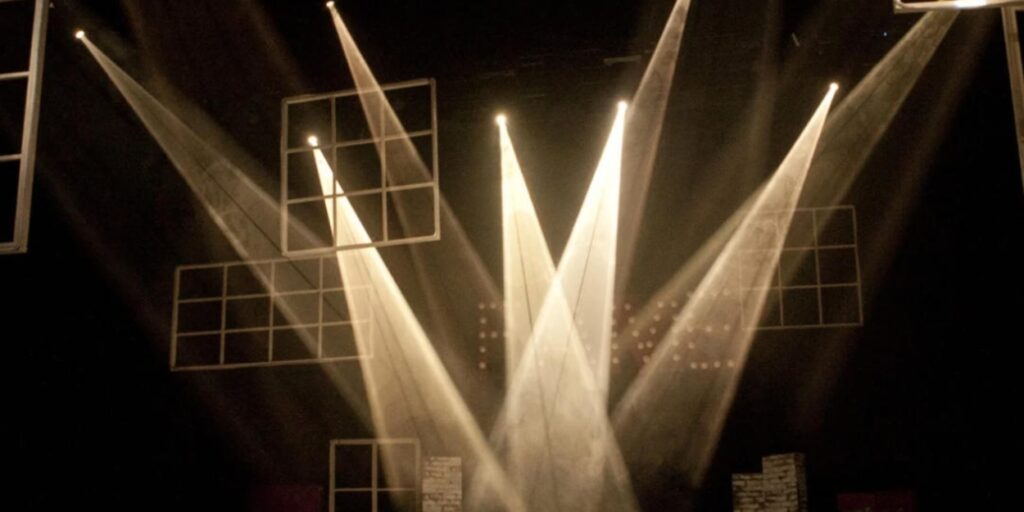I have been studying drama in school since the 8th grade and have had many drama teachers who have influenced my life. I feel that the different teaching styles from those different teachers made me a stronger artist, but also gave me the potential to become a stronger educator. Drama class is a space where everyone belongs, where each student's background and life experiences are not only tolerated, but celebrated and able to contribute to the space as a means to enhance the art. Although I have always felt as if theater was what I was meant to do, in recent years I have been inspired to support the artistic endeavors of others through opportunities to serve in various leadership roles in school theater programs. I realized that I had an even greater passion for teaching. I love helping underclassmen with their workshop pieces, sharing my philosophy on professionalism, and watching young performers and technicians learn and grow. I have worked as both a performer and a technician and recognize the value of both in any space. Before working in high school theater, I grew up in the community theater world and I know it had a huge impact on my personal growth. Having personally experienced the impact theater creation has on human development, I can't help but smile at the thought of being able to be a part of the process in some way. My deepest sense of fulfillment comes not from my own art, but from watching others create their own work.
One of the main jobs of a drama teacher, especially at the high school level, is to direct a variety of serious plays, musicals, one-act plays, and more. As a junior, I only had the opportunity to direct one-act plays at school, but I have recently signed a contract to be an assistant director of children's musicals at a local professional theater, and I have the intention and ability to direct three or more acts. There is also. I created additional pieces during my senior year. But directing production is not new to me. At the age of four, he fell in love with theater after seeing his first live performance of Jack and the Beanstalk, and began directing his own productions. Of course there are no human actors involved, but I would argue that my action figures were perfectly acceptable performers (and cheaper than hiring union actors). Whenever I would stay over at my grandparents' house, I would set up a table in the living room and play cast recordings of musicals I was obsessed with at the time, recreating them with action figures. By the time I was his 11th year old, my grandfather had built me an entire puppet theater complete with a PVC pipe rigging system, a cyclone, some battens to hang colorful flashlights, and a full-fledged sound system. He gave it to me. I went on to turn every major musical phenomenon of the 2010s, from Hadestown to Frozen, into action figure performances, while also introducing original plays of my own. After I finished cleaning up from my performance of an original piece called “A Case Worth Sharing,” I headed to bed. My grandparents were still swinging around in the living room, and I heard Grandpa Dave say, “That kid's going to be a writer.” Or maybe the director. Or an actor. But he was going to do it. ” In January 2021, he lost his battle with COVID-19, but I still feel him every time I pick up a script, sing at an audition, or write a new play. He encouraged me every step of the way. And it will be the honor of his life to be able to become a Grandpa Dave for even one young theater person who might not have one.
My hypothetical philosophy in the area of drama education, prior to any formal university training on how to actually become a drama teacher, comes down to three central ideas. I want to provide a place where all students feel seen, heard, and valued, regardless of their circumstances. Although it is a common stereotype that art teachers serve as another parent to many of their students, I truly believe in building close relationships with students both as a director and as a teacher. In my experience, just as important as having a close relationship is establishing fair boundaries. It's clear that burnout exists even among teachers and executives, and it's much easier to reach true burnout if you're dealing with an inadequate work-life balance. Having worked in the Phoenix metropolitan theater scene for years, theater feels like my entire life, but I'm willing to give up everything and everyone around me in the name of artistry. It took me a while to truly realize that this wasn't just or sustainable. Too many theater teachers ignore burnout and lose their passion. Of course, all teachers want to give their students 100% every day, but I want to bring a human touch to the field of theater education. I don't give 100% to class every day, and I never expect my students to either. If either party in this scenario could show up every day with maximum energy, we wouldn't be human artists. We would be game show hosts. In addition to this, I want to embrace innovation in theater by respecting the past while at the same time recognizing that my students and their ideas are the future. Innovation is at the heart of my artistic philosophy. Theater is a playground, an experiment to see what we can create. I want to take my students beyond “it works” to the realm of “why does it work?” Too often the voices of young artists are censored and ignored, even though they have some of the most valuable ideas about the world and human experience as a whole. Whether this expression of innovation comes through the use of new mediums, experimental new work, or simply pushing the limits of what society tells us teens can produce in the arts. Regardless, it is central to my views on theater education. Finally, I want to give my students every opportunity to work in the industry if they wish. I have considerable personal experience with the power of networking and professionalism, and I can tell you that both are just as important to “succeeding” as the people themselves. I am ready to help students connect with the people they need and guide them through the college audition process if needed. It is my honest belief that anyone who wants a career in theater can find a way to do it somewhere, if at all. Not what they originally intended. No matter what, I want theater education to remain a place where young theater professionals can explore the different niches the art form has to offer while growing as students, artists, and people.
play broadway games
 Test and expand your Broadway knowledge with our new game – Broadway Matchup! How much trivia do you know about Broadway casting? Test and expand your Broadway knowledge with our new game – Broadway Matchup! How much trivia do you know about Broadway casting? |
 Play daily games, explore current shows, and delve into past decades like the 2000s, 80s, and the Golden Age. Challenge your friends and see where you rank! Play daily games, explore current shows, and delve into past decades like the 2000s, 80s, and the Golden Age. Challenge your friends and see where you rank! |
 How much do you know about the history of the Tony Awards? Challenge your friends by taking our never-ending quiz on the history of nominations and winners. How much do you know about the history of the Tony Awards? Challenge your friends by taking our never-ending quiz on the history of nominations and winners. |
%20(1024%20×%20512%20px).png) Can you beat your friends? Play today's Broadway word game, featuring new words and phrases inspired by theater every day! Can you beat your friends? Play today's Broadway word game, featuring new words and phrases inspired by theater every day! |


